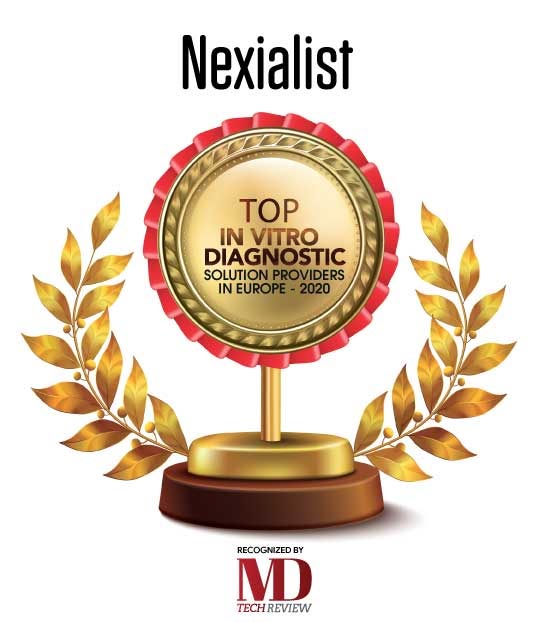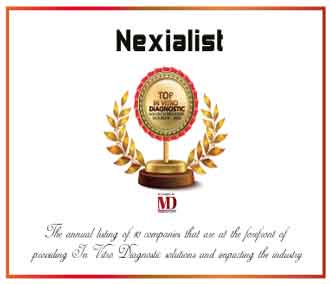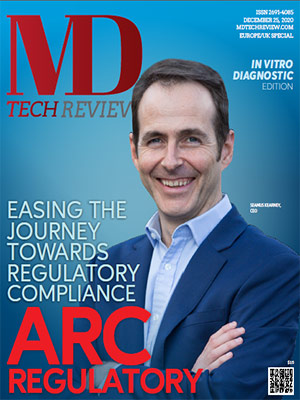Entrepreneurs invest a significant amount of time and resources in strategising and planning while building a business from the ground up. However, not many can realise the importance and enormous role of a business name that truly transpires their perception and sums up everything that their company is about. The folks at Nexialist beg to differ, who were inspired by the term ‘Nexialist’—long known to describe someone who has trained in “interdisciplinary science and thought.” The name—first coined by Alfred Elton van Vogt, a Canadian-born science fiction author—is typically used for someone who can see the connections between different disciplines that others cannot see, seasoned in conflict resolution, and can seamlessly solve complex problems as a great link builder within a team.
It’s no coincidence that Vincent Castéras, Associate Director of Nexialist and his team decided upon this particular business name to pursue their vision and mission. Since its inception in 2006, the company has been committed to one goal: develop and provide market access to medical innovations, using a multidisciplinary approach based on a global view of the product life cycle that includes the end-user.
As the name suggests, Nexialist—skilled in joining the knowledge of one field of learning with that of other areas to find original solutions to problems and identify new tracks— was born to empower companies in the medical device sector, including in vitro diagnostic and advanced therapy devices. Today, the company is well-positioned in Europe as a key player in medical consulting, helping its clients solve diverse compliance, quality, and regulatory-related challenges as well as build product development and commercialisation strategy.
According to Castéras, the focus is on bringing high-quality medical devices and in-vitro diagnostics to the market. “When it comes to medical devices or in vitro diagnostics, I always wanted my family and friends to get the best products possible. As a result, me and my team at Nexialist decided to be a part of the process of such products. This is precisely when we observed a market gap—the lack of seamless communication between the regulatory authorities in Europe and manufacturers, importers, and distributors,” he explains. The biggest problem concerning compliance and conformity is the misunderstanding or difficulty of communication between these two parties. “We stand literally between the twoto help manufacturers talk to regulatory authorities, and regulatory authorities to understand what the manufacturers are expecting or trying to do.”
He goes on to mention that more than 80 per cent of the in vitro diagnostic products nowadays are on self CE marking— an auto CE marking system where the manufacturer reads the directive, sets up a system as per his understanding of the directive and a technical file, before putting the products on the market with a CE mark on them. The challenge here lies in transitioning from 80 per cent self-certified products to 80 per cent of the products that meet the requirements of the regulatory bodies. However, this transition is faced with two main roadblocks. First off, the lack of notified/regulatory bodies under the IDVR. While the amount of self-certified products continues to grow, there are not as many notified/regulatory bodies to review them.
Secondly, the main concern is the lack of communication between the manufacturers and notified bodies. When most manufacturers set up their technical documentation and other files documenting their conformity on their facilities, they do not know if they have conformed to the law as no one has ever checked the documentation.
It’s no coincidence that Vincent Castéras, Associate Director of Nexialist and his team decided upon this particular business name to pursue their vision and mission. Since its inception in 2006, the company has been committed to one goal: develop and provide market access to medical innovations, using a multidisciplinary approach based on a global view of the product life cycle that includes the end-user.
As the name suggests, Nexialist—skilled in joining the knowledge of one field of learning with that of other areas to find original solutions to problems and identify new tracks— was born to empower companies in the medical device sector, including in vitro diagnostic and advanced therapy devices. Today, the company is well-positioned in Europe as a key player in medical consulting, helping its clients solve diverse compliance, quality, and regulatory-related challenges as well as build product development and commercialisation strategy.
According to Castéras, the focus is on bringing high-quality medical devices and in-vitro diagnostics to the market. “When it comes to medical devices or in vitro diagnostics, I always wanted my family and friends to get the best products possible. As a result, me and my team at Nexialist decided to be a part of the process of such products. This is precisely when we observed a market gap—the lack of seamless communication between the regulatory authorities in Europe and manufacturers, importers, and distributors,” he explains. The biggest problem concerning compliance and conformity is the misunderstanding or difficulty of communication between these two parties. “We stand literally between the twoto help manufacturers talk to regulatory authorities, and regulatory authorities to understand what the manufacturers are expecting or trying to do.”
He goes on to mention that more than 80 per cent of the in vitro diagnostic products nowadays are on self CE marking— an auto CE marking system where the manufacturer reads the directive, sets up a system as per his understanding of the directive and a technical file, before putting the products on the market with a CE mark on them. The challenge here lies in transitioning from 80 per cent self-certified products to 80 per cent of the products that meet the requirements of the regulatory bodies. However, this transition is faced with two main roadblocks. First off, the lack of notified/regulatory bodies under the IDVR. While the amount of self-certified products continues to grow, there are not as many notified/regulatory bodies to review them.
Secondly, the main concern is the lack of communication between the manufacturers and notified bodies. When most manufacturers set up their technical documentation and other files documenting their conformity on their facilities, they do not know if they have conformed to the law as no one has ever checked the documentation.
Our strength lies in working as a team, wherein our highly experienced professionals collaborate to find creative solutions to our clients’ problems
This is where Nexialist enters to provide the regulatory intelligence and conformity/compliance of medical devices under IVDR. The company helps medical devices, in vitro diagnostics and advanced therapy devices companies to optimise their internal processes, improve product quality and reduce the cost of low quality. Nexialist covers the full spectrum regarding the conformity of the product—right from the point when you conceive the idea of a product to commercialising and putting it on the market. That’s not all; it also helps them maintain that conformity and improve the efficiency of their quality control system using a specific model that focuses on the design of the product, documentation of the design, adherence to design controls, and more. In a nutshell, the company offers regulatory intelligence, emergency, design and development solutions along with process validations, training, internal and external audit services and more. Nexialist’s structured solution allows companies in the marketing of safe and effective innovative medical products in a controlled time and optimised costs. Besides expert support and consulting services, the team works closely with the clients to draft documents and defining actions to be taken and monitoring. This also involves supporting the realisation of records or management of actions based on the customer’s raw knowledge and validation of actions and texts.
When it comes to regulatory intelligence, Castéras believes that if companies want to become efficient and reduce time-tomarket, they need to have a good view of what is going to happen. To help them discern the next steps, a big part of the company is dedicated to assessing the landscape and help the client adapt in advance rather than follow afterwards. “In essence, we set up a model for technical documentation for regulatory purposes, which is fully compliant with the requirements of IVDR. To help our clients improve in anticipating the unforeseen trends and transformations, our model of regulatory strategy assesses the intended use of the product, and the client’s marketing objectives to build a potential roadmap for reaching their goals,” he adds. In Europe, medical devices companies often tend to view regulations as monolithic, whereby there is only one way of doing things to stay compliant. However, Nexialist is changing this perception with its regulatory strategy model, which helps explore new options and ways to reach business objectives in the fastest manner possible. In short, the company equips organisations with evidence-based management that is then applied to regulatory science.
Besides optimising time to market by avoiding delays in the processing of files due to errors in the interpretation of regulations, Nexialist enables clients to commercialise health products, maintain the conformity of their products, reduce the risk of discontinuation or suspension of commercialisation, with the benefit of simplifying maintenance.“We are proud of helping numerous companies mitigate the threat of marketing suspension and thus save over 700 jobs in the process,” extols Castéras.
The uniqueness of Nexialist stems from its firm belief in teamwork. The strength of the company lies in working as a team, wherein its highly experienced professionals collaborate to find creative solutions to clients’ problems. “A single person cannot have all expertise to solve the complexities in this realm; you need a team of experts for that. This is what Nexialist stands for—a team that combines the expertise of professionals in diverse fields to come up with new and innovative solutions. We also help clients imagine, forecast and anticipate what lies ahead of them in the future and become more efficient and faster,” states Castéras. “At the core, our primary purpose is to make compliance simpler for our clients in this highly complex realm, empowering them to follow the guidelines in the right way and bring their products to the market with a smart commercialisation strategy.”
Moving forward, Nexialist looks forward to expanding to other side of the globe, exploring the scope of its business in Canada, Boston Area and Washington. On the services side, the company will continue reinventing consultancy in the regulatory landscape and helping its clients optimise their processes with regard to regulatory compliance.





